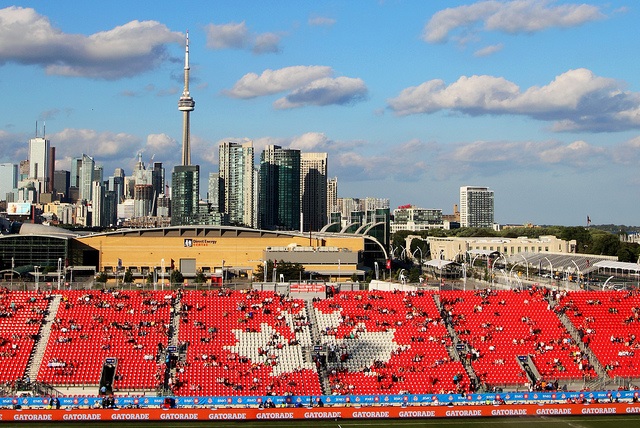


OTTAWA – Canada has discovered a new way for its team to qualify for the World Cup: paying millions of dollars to host the event.
The joint bid from Canada, the United States and Mexico to host the 2026 World Cup of Soccer is gaining momentum, and it is a long-standing FIFA rule that the host country automatically qualifies for the tournament.
“Oh, man, if we could just host the World Cup, and qualify that way, that would be a much more direct route than actually having a talented team,” explained Canadian Soccer Association President Steve Reed. “Our national skills at throwing money at corrupt FIFA executives dwarf our national skills at kicking a ball around a field.”
The cost for each city to host World Cup games is estimated to be $45 million. Toronto Mayor John Tory, who declared his support for the bid today, said “it’s no problem to get that kind of money from the federal, provincial and municipal governments,” said Tory. “But trying to outscore Honduras in a home and away playoff? For Canadians, that’s very difficult and involves a lot of using legs that are not attached to skates. Also I am told you are not allowed to use sticks”
Canada has a long tradition of being bad at soccer in the men’s division. The Canadian Mens Soccer team has only qualified for the World Cup once, at the 1986 tournament in Mexico, where Canada lost all its games without scoring a single goal. Soccer is currently Canada’s 47th most popular sport for adults to watch, behind ice golf but ahead of Basque Pelota.
Soccer Canada already has a plan in place to remove all funding from programs training soccer players to be good at soccer, and put that money towards training players to host World Cup parties.
“Sure, the team will be embarrassingly bad at scoring goals,” said the newly appointed coach of the Canadian Men’s team, John Herdman. “But they will technically be qualifiers for the World Cup! And they will probably have the most advanced DJ and cocktail mixing skills of any players in the tournament!”
At press time, the Canada Soccer Hall of Fame in Vaughan, Ontario was getting ready to induct 50 of the key Canadian bureaucrats who are helping make this remarkable workaround possible.


